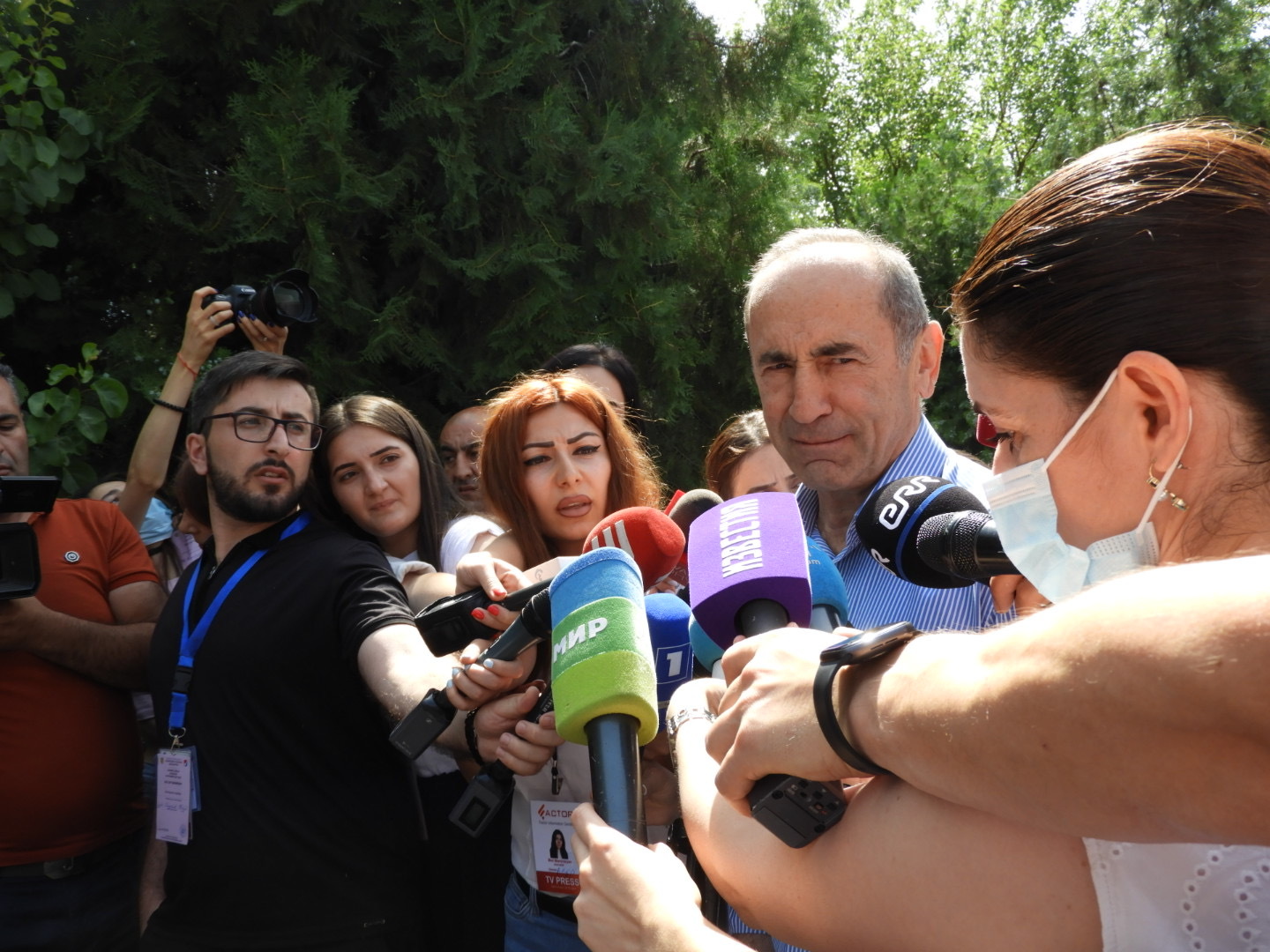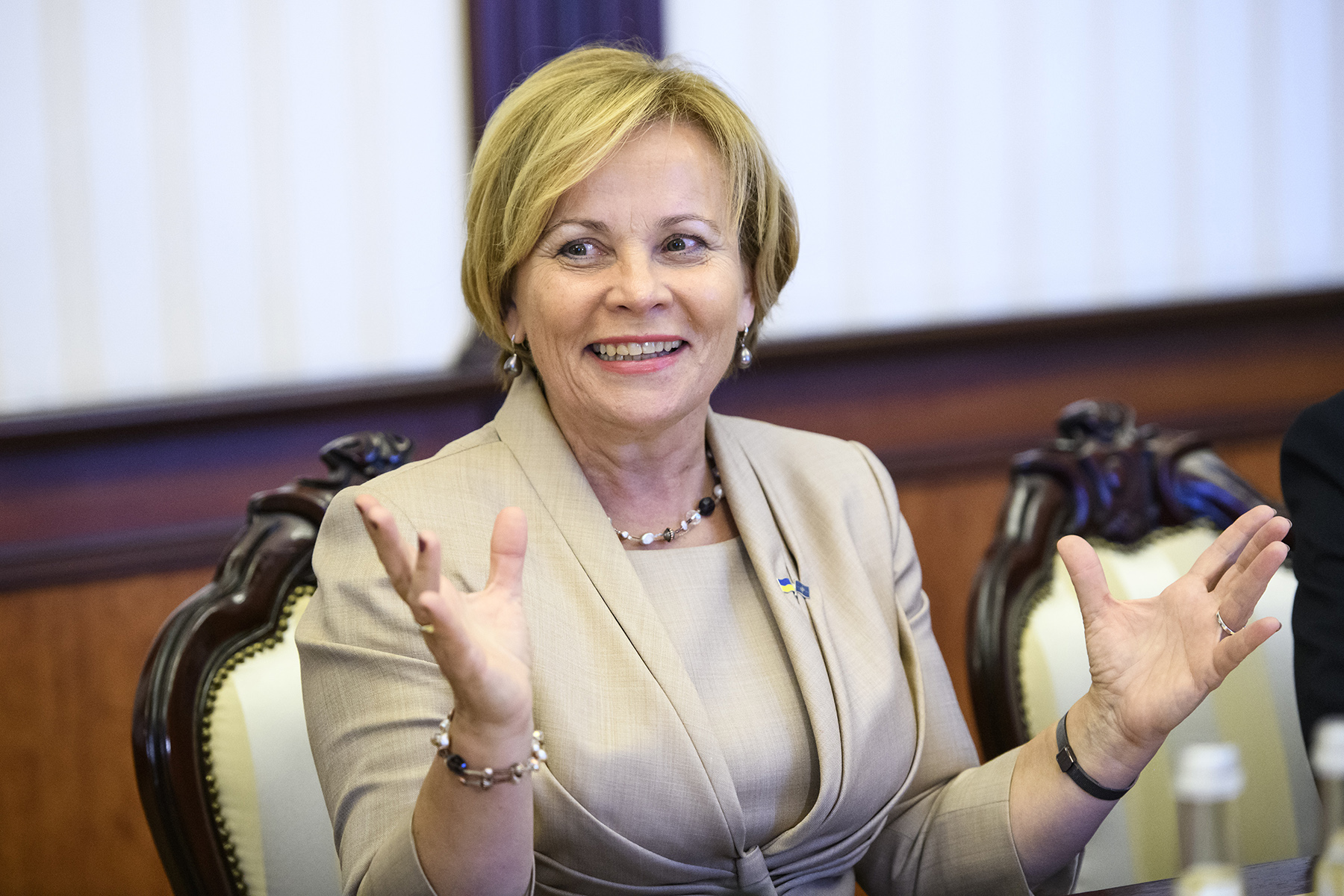
Recent promises of multi-billion-euro investments in Armenia by the European Union signal a deepening relationship between Yerevan and Brussels and renewed EU confidence in the legacy of the 2018 Armenian revolution.
This summer, the European Union announced a €2.6 billion aid package for Armenia over the next 5–7 years, the single largest aid package given to Armenia by the European Union.
The announcement, delivered on 9 July by EU Commissioner for Neighbourhood and Enlargement Oliver Varhelyi during a visit to Yerevan, also includes a promise that the package may grow to €3.1 billion.
According to diplomats, the new funds appear to be an endorsement by Brussels of the landslide victory by incumbent Prime Minister Nikol Pashinyan in the snap parliamentary elections this past June and are a reward for Armenia’s ‘reform agenda’ following the 2018 revolution.
The funding also comes hot on the heels of the Armenia-European Union Comprehensive and Enhanced Partnership Agreement (CEPA), which came into force on 1 March. The agreement contains clauses deepening cooperation between Armenia and the EU on institutional reform, economic investment, and the lifting of tariffs on imports and exports between Armenia and the 27-member bloc.
‘Proof of trust in democracy’
One of the reasons for the EU increasing the level of funding in the package was seen to be the Pashinyan government’s victory over Armenia’s pre-revolutionary authorities in the June snap parliamentary elections.
The €2.6 billion package was given ‘based on past achievements’, Andrea Wiktorin, the Ambassador of the European Union to Armenia told OC Media. ‘At the same time it will, in the end, depend on the maturity of projects and how quickly we can implement the flagships’. The EU identifies ‘flagships’ as ‘concrete priority projects with tangible results that have been identified jointly with the partner countries’.
In the case of Armenia, flagships include direct economic support for up to 30,000 small and medium enterprises; up to €600 million for a north-south transport corridor; up to €300 million in loans and grants for Armenia’s tech sector; up to €80 million in economic and infrastructure investment in the southern Syunik Province to develop ‘resilience’; and up to €120 million in investments for a more ‘energy efficient’ Yerevan, including the modernisation of public transport in the capital.
Wiktorin said that the EU ‘took good note’ of the OSCE observer assessment of the elections in June that ‘stated that the elections were competitive and generally well-managed within a short timeframe’. She added that the EU also supports Armenia’s ‘strong commitment to further pursue its reform agenda’.
Lithuanian Ambassador to Armenia, Inga Stanytė-Toločkienė, also praised the snap elections as ‘proof of Armenian people’s trust in democracy’ as well as ‘proof of a resilience of democracy in Armenia’.

She says that, in addition to the assistance package and the implementation of the CEPA agreement, ‘another direction Lithuania would enthusiastically support is related to further progress towards visa liberalisation’.
‘The time has come to launch visa dialogue with Armenia’, she said, with the added caveat that ‘there is a need to ensure consensus among all the Member States’.
Lithuanian Member of European Parliament Rasa Juknevičienė told OC Media that for EU-Armenia cooperation to truly flourish, Armenia must first ‘overcome the war legacy, however painful’ and ‘focus fully on social and economic development’.
‘War is never a good solution’
Viola von Cramon, a German Member of the European Parliament, told OC Media that the EU ‘can be more involved’ in the resolution of the Nagorno-Karabakh conflict.
One avenue for further EU involvement, according to von Cramon, would be if the 27-member bloc replaced France as a co-chair of the OSCE Minsk group. The current co-chairs of the group, which has been tasked with helping resolve the conflict, are France, Russia, and the United States.
At the same time, von Cramon said she sees ‘a reluctance of some of the EU leaders to act and to see themselves as a political player’.
‘War is never a good solution. I recognise efforts by Russia in negotiating a ceasefire but that is not a long-term solution’, Estonian MEP and chair of the EU’s South Caucasus Delegation, Marina Kaljurand, told OC Media.
Kaljurand urged Armenia and Azerbaijan to come to the ‘negotiating table under the auspices of the OSCE Minsk Group to find a peaceful and negotiated solution to the Nagorno-Karabakh conflict’.
‘The people of Armenia and Azerbaijan deserve peace and prosperity’, she said.
The Russian factor
With its deployment of 2,000 peacekeepers to Nagorno-Karabakh, Russia has been seen by many observers as a ‘winner’ of the Second Nagorno-Karabakh War. The EU, meanwhile, is seen as one of the ‘losers’, with its influence vis a vis Russia, decreasing.
Russia has also been increasingly active in Armenia. From announcements that it will build new metro stations in Yerevan, to the first-ever opening of a diocese of the Russian Orthodox Church in Armenia, to the practical fact of the Russian FSB overseeing much of Armenia’s borders.
According to Viola von Cramon, growing Russian influence in the South Caucasus is primarily based on military ‘boots on the ground’ but not on a ‘commitment to conflict resolution’. Especially when the increase in Turkish influence in Azerbaijan is also considered, ‘it’s becoming hard for the EU to have political influence’, von Cramon said.
At the same time, she said, the role of the European Union in the region was fundamentally different to that of Russia. The EU does not seek to make Armenia or any other country in the region ‘dependent’ on the EU ‘as Russia is doing and has done in the past’, she argued.
Lithuanian MEP Rasa Juknevičienė, meanwhile, told OC Media she did not see the end of the Second Nagorno-Karabakh War ‘as a win for Russia, as some may argue’ — especially when considering Armenia’s military cooperation with Russia, and the role Turkey played in Azerbaijan’s victory.

‘Russia’s monopoly of geopolitical influence in the region has actually weakened as Turkey entered the scene. I do not think that it was a wise decision [by Armenia] to rely on Russia entirely from the very beginning’, Juknevičienė told OC Media, adding that it was Armenia’s sovereign decision, ‘but a hard way to learn later that Putin’s Russia is not a security guarantor to be trusted’.
When asked about Russia’s role in the region, Lithuanian Ambassador Inga Stanytė-Toločkienė was firm in her comment that ‘the resolution of the conflict needs to be “re-internationalised” ’.
‘There’s nothing healthy for smaller countries in the monopoly, or deals over their heads, by bigger regional powers’, Stanytė-Toločkienė said. ‘We would wish to see such concepts as “spheres of influence” firmly buried in the past’.
Looking north and looking west
Despite Russia’s inroads in the country, Stanytė-Toločkienė says that the EU remains Armenia’s key ‘reform partner’. As for the EU’s role in the resolution of the Nagorno-Karabakh conflict, that depends on the ‘extent Russia will feel it is in its interests to guard the monopoly it has created after the Second Nagorno Karabakh War’.
EU Ambassador Andrea Wiktorin said that Armenia does not necessarily have to choose between looking north and looking west. CEPA for instance, she said is ‘fully compatible’ with Armenia’s membership in the Russia-led Eurasian Economic Union trade bloc.
‘The Eastern partners have a full, sovereign right to shape the breadth and depth of their relations with the EU and other international players freely’, she said.








